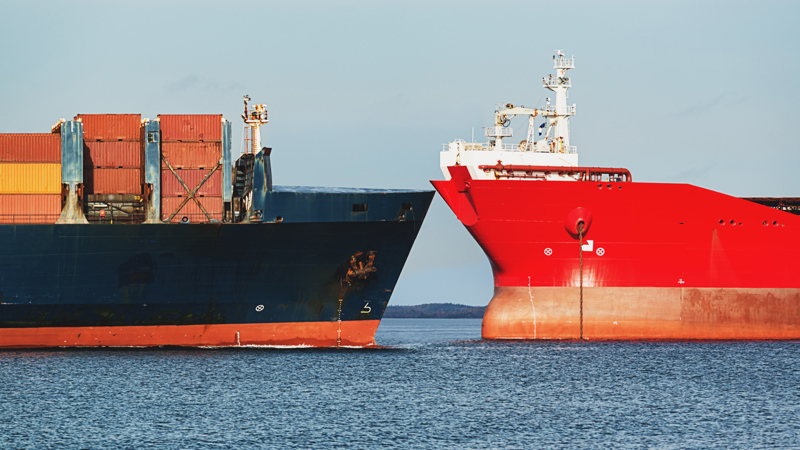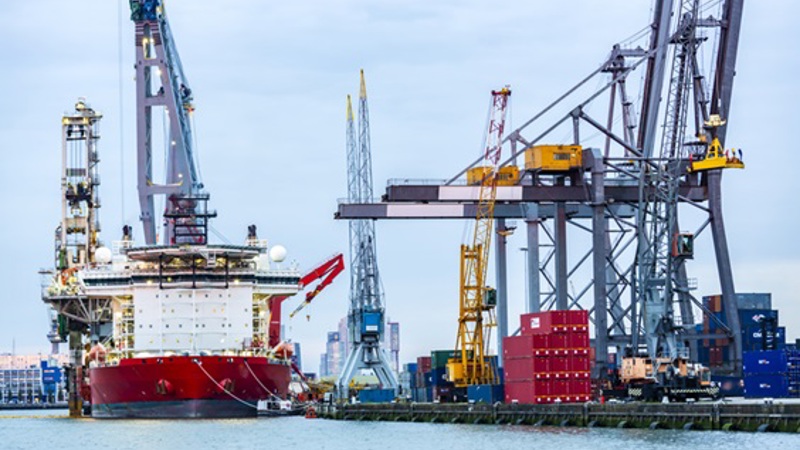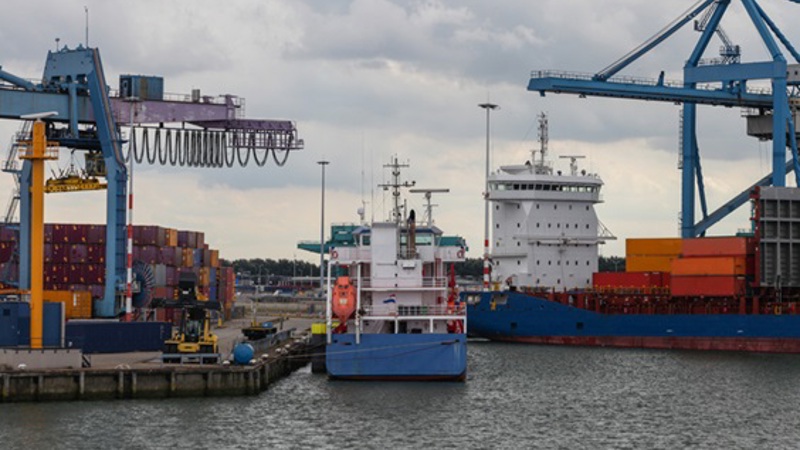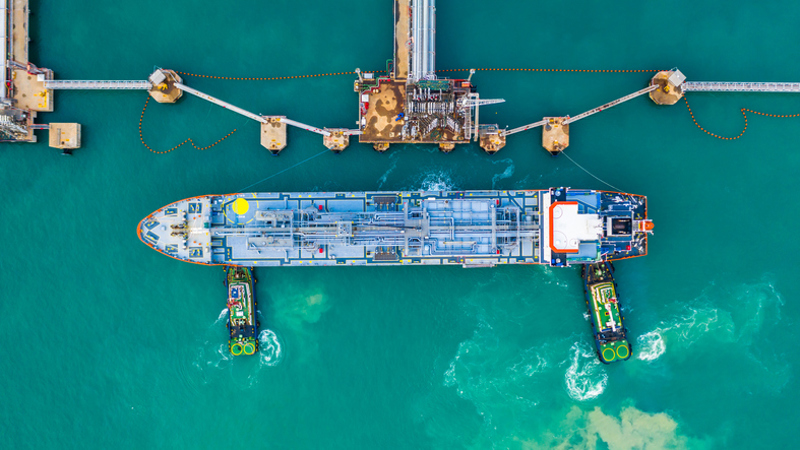Limitation of liability in inland shipping – legal proceedings under Art. 12 CLNI
Background
On 29 June 2023, the mv. “Perficio” sailed against the Humbeekbrug in Belgium, the lift bridge over the Zeekanaal Brussel-Schelde. As a result of the collision, the bridge could no longer be opened, and the shipping traffic was suspended for almost a week thereafter. Inter alia the Flemish waterway authority DVW (“De Vlaamse Waterweg”) suffered considerable damage, for which it held the Dutch owners of the “Perficio” liable. DVW also ordered by way of an administrative arrest on 5 July 2025 that the shipowners and their underwriters were not allowed to remove the vessel. The next day, the shipowners filed a request to limit their liability before the Rotterdam Court. On 12 July 2023, DVW started legal proceedings before the Commercial Court of Brussels with two requests: i. that the court would hold that the “Perficio”-owners are to reimburse the damage suffered by DVW and ii. that the “Perficio”-owners are not allowed to limit their liability pursuant to the Strasbourg Convention on the limitation of liability in inland navigation (“CLNI 2012”). In September 2023, the “Perficio”-owners were also sued before the Rotterdam Court. The question was whether the Dutch court was entitled to deal with the limitation request, which turned upon the interpretation of ar. 12 CLNI.
Interpretation Article 12 CLNI
Art. 12(1) CLNI reads in as far as relevant:
“Any person alleged to be liable may constitute one or more funds with the competent court or other competent authority in any State Party in which legal proceedings are instituted in respect of a claim subject to limitation, or, if no legal proceedings are instituted, with the competent court or other competent authority in any State Party in which legal proceedings may be instituted for a claim subject to limitation.”
DVW argued that in case legal proceedings (as referred to in Article 12(1) of the CLNI 2012) have been started in several State parties, the fund must be established in the State party in which the legal proceedings were brought first. DVW considered the administrative arrest as legal proceedings in the meaning of Art. 12 CLNI. In addition, DVW argued that the question of whether legal proceedings have been or will be brought must be assessed at the time the limitation request is brought, rather than at the time when the request is assessed, as argued by the “Perficio” owners. The difference is important because at the time that the limitation request was made, an administrative arrest had already been made in Belgium, whereas legal proceedings on the merits had not yet been started in Rotterdam.
Decision Supreme Court[1]
In October 2023, the Rotterdam Court granted the “Perficio”-owners’ limitation request. This decision was confirmed by the The Hague Court of Appeal and recently also by the Supreme Court.
The Supreme Court first of all considers with reference to the CLNI’s Travaux Préparatoires that the CLNI is based on the LLMC and that its wording is the same, except when inland shipping requires a special regime.[2] Art. 12 CLNI is derived from art. 11 LLMC, but - unlike the LLMC 1996 (art. 11) it also allows a party to file a limitation request when no proceedings are pending yet.
The Supreme Court then considers that Art. 12 CLNI should be interpreted similarly to Art. 11 LLMC. The Supreme Court had previously interpreted Art. 11 LLMC (i.e. in the Stolt Commitment/Stolt Taurus, ECLI:NL:HR:2020:956) and held, with reference to the autonomous interpretation prescribed by the Vienna Convention on the law of Treaties, that Art. 11 LLMC does not grant jurisdiction for limitation proceedings. In line with this decision the Supreme Court holds in the “Perficio” that the CLNI, neither Art. 12 nor another provision, creates jurisdiction to file a limitation request. Art. 12 CLNI would only limit a court’s jurisdiction, based on a convention, regulation or national law, to grant a limitation request if legal proceedings are not yet pending or cannot potentially be started in that jurisdiction.[3] In the words of the Court of Appeal, Art. 12 CLNI’s sole purport would be that the party who would like to make use of the limitation of liability cannot itself freely choose where he will constitute a limitation fund. The addition that a party can file a limitation request when no proceedings are pending yet would only have been added to prevent delay and unnecessary proceedings. [4]
The Supreme Court then turns to the question of the relevant moment to determine whether proceedings are pending. It holds that as it does not follow from Art. 12 CLNI at which moment it has to be determined whether legal proceedings are pending, the question has to be answered pursuant to national law, and hence under Dutch law. Pursuant to Dutch procedural law, the starting position is that the question whether a claim can be granted has to be determined at the time of the decision. At the moment that the request was granted, legal proceedings were pending in the Netherlands. The Rotterdam Court therefore was entitled to deal with the limitation request.[5]
The Supreme Court concludes that it follows from the wording and intention of Article 12(1) CLNI 2012 that, if legal proceedings have been instituted in different States Parties, it is left to the shipowner to choose the jurisdiction in which an application for the establishment of a fund is to be made. Article 12(1) of the CLNI 2012 only stipulates that the fund must be established in a State Party where legal proceedings are “brought” or, if no legal proceedings are brought, where they could be brought. The possibility of making a request for the establishment of a fund in a particular State Party is therefore, pursuant to the Supreme Court, not dependent on the question in which State Party legal proceedings have been first started.
Comment
In the “Perficio” judgment, the Dutch Supreme Court builds upon its decision in the Stolt Commitment/Stolt Taurus. The latter decision was critically received[6] and is not uncontroversial. Pursuant to the interpretation method set out in the Vienna Convention on the Law of Treaties, the decision will need to be taken into account by other courts in their interpretation of the provision. It is not a given that such other courts will come to the same conclusion that Art. 12 CLNI does not contain a jurisdiction rule.
____________________
[1] Dutch Supreme Court 5 September 2025, ECLI:NL:HR;2025:1239.
[2] Para. 3.2 with reference to CLNI’s Travaux Préparatoires CLNI 1988, p. 119.
[3] Para. 3.6.
[4] Court of Appeal of The Hague 3 September 2024, ECLI:NL:GHDHA:2024:1802 (Perficio), para. 4.5.
[5] Para. 3.8.
[6] See inter alia F. Stevens, ‘Rechtspraak Stolt Commitment: de Hoge Raad maakt beperking van aansprakelijkheid in Nederland moeilijker’, TVR 2021-1 at 5.










